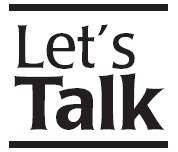Throughout the course of our lives, all of us experience some type of stress or trauma. The effects of stress and trauma can cause a variety of problems from chronic illness, to feeling overwhelmed or apathetic, to becoming hypervigilant and anxious.
These feelings are a natural result of our innate response to danger, in which our body prepares itself to fight, flee, or freeze.
Think for a moment about a time you watched a nature program on TV. There’s an antelope, quietly grazing while a lion creeps up. When the antelope smells or sees the lion, it has few options. If it freezes or tries to fight the lion, it will surely be eaten, however if it runs, it may escape. Next ensues the chase, and the antelope is either caught by the lion and killed or runs to safety. The antelope’s protective response to the threat, fleeing, has served its purpose, and within minutes of escaping the hungry lion, the antelope is again quietly grazing.
How this relates, is that the fight, flight, or freeze response is designed to activate immediate physiological changes in our bodies to maximize our chances of survival; it is not, however, designed to stay active for a long period of time. After the threat is gone, the antelope goes back to grazing.
The difference with us is that we tend to carry the lion around with us. We worry and rethink and relive whatever it is that has caused us stress again and again, unable to internalize the fact that the original threat has passed. As this happens, the physiological responses that are meant to keep us safe actually start to work against us, causing some of the distressing effects of prolonged stress and trauma mentioned above.
With this in mind, there are things we can do to get ourselves out of “survival mode” and back into a state of equilibrium. For example, try breathing in through your nose and out through your mouth. Just taking a few moments to focus on your breath, breathing deep into your lungs and focusing on letting your belly fill up with air and then empty again. This can help quiet the heightened activity of our sympathetic nervous system, in turn decreasing heart rate and blood pressure, bringing us out of survival mode and back to a place where we can think more rationally.
It’s important to remember that while regular exercise, meditation, and mindfulness can be very effective at reducing stress and its negative effects, it is an ongoing process, it doesn’t happen overnight. Becoming aware of what stressors we carry with us is the first step, and from there we can make changes that make us feel and live better. We have to relearn how to listen to what our bodies are telling us, and with patience and practice, we really can learn to leave the lion behind.
Each month a local mental health therapist will discuss an area of mental health. This month’s contributor is Marybeth Wilkes, program advocate at the Violence Prevention Center.



Loading Comments